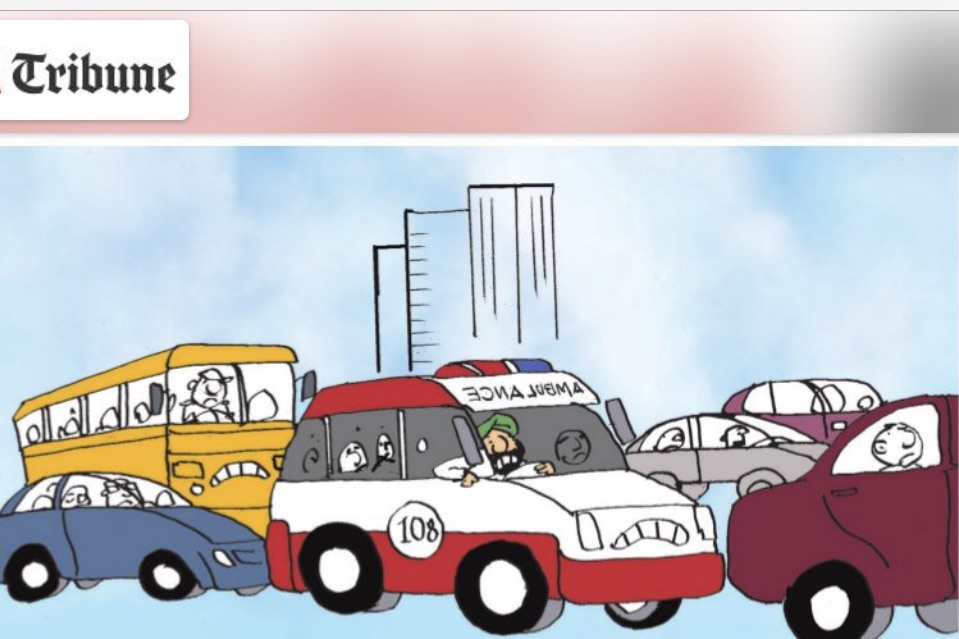
As I return to my column after a longish break, desperately hoping that I was missed, I am numbed by a recent happening and intrigued by the coincidence. I had last written on how we Indians live precariously. Now I am compelled to write this one about falling off the edge. It seems, if you live on the fringe, falling through the gap is inevitable.
He was still practicing paediatrics at the age of eighty one, mostly for charity. He was a published writer and had authored many books. His last one Amrit Kalash aboutpractical tips on infant care and breast feeding, was just out. When he had visited a week before the incident he was busy making copious notes for his next book. He had mellowed a little but still lived up to his moniker ‘Garam Chacha’, a name I had given him as a child and that had stuck because of his temperament. He hadn’t lost his firm, somewhat opinionated voice and his dry sense of humour. After dinner at our place he told me that though the kadhi I had made was nice he would have to teach me how to make spongy pakoras with holes on the surface.
On his journey back home he slipped while getting on the train and was caught between the platform and the train. His right leg got crushed before the chain could be pulled and the train stopped. He lay bleeding on the platform, writhing in pain while his gynaecologist wife who was traveling with him tried to do what she could. There was no first aid box, no splint to support his leg and no way to start an infusion. After waiting for the ambulance in vain, he was shifted to the district hospital in a three wheeler, the only available vehicle that could accommodate a stretcher. Further delay was caused by the numerous rallies and religious processions slowing traffic on the way. The district hospital wasn’t equipped to deal with the emergency so he was taken to the military hospital. Valuable time was lost on the logistics of this transfer. By the time he reached a centre where something could be done nothing could be done. He bled to death, all the while offering suggestions on ways he could be saved.
This lack of basic medical amenities could have been forgiven had this happened in one of those villages or small hamlets that dot rural India, but this occurred in a district, a place of great religious importance. As we gear up for elections and are surrounded by promises of bigger hospitals with more sophisticated equipment, we should probably just ask for basic medical services, not on paper, but in place! Services that are readily available when needed.
Meanwhile like all average Indians, the family has made peace with the situation. To the extent of saying that he was fortunate to have died in the holy city, where people camp for years seeking deliverance. That the pain and agony he suffered in the last hours of his life would rid him of any past sins and ensure salvation. While I don’t fully buy that theory I do agree that he had lived a full and fruitful life. But this fact doesn’t reduce the despair or excuse the mismanagement. He had so much life left in him, so many dreams for the future, so many unfinished poems and untold stories. He shouldn’t have died, and in any case, not the way he did. It will always hurt me that a person who spent his entire life treating others and fathered three doctors, one a neurosurgeon in the army, died for want of basic medical care.
Why am I writing about this, because although he was my chacha he could very well have been yours.
( published in my column in the Tribune on 27/4/2019)